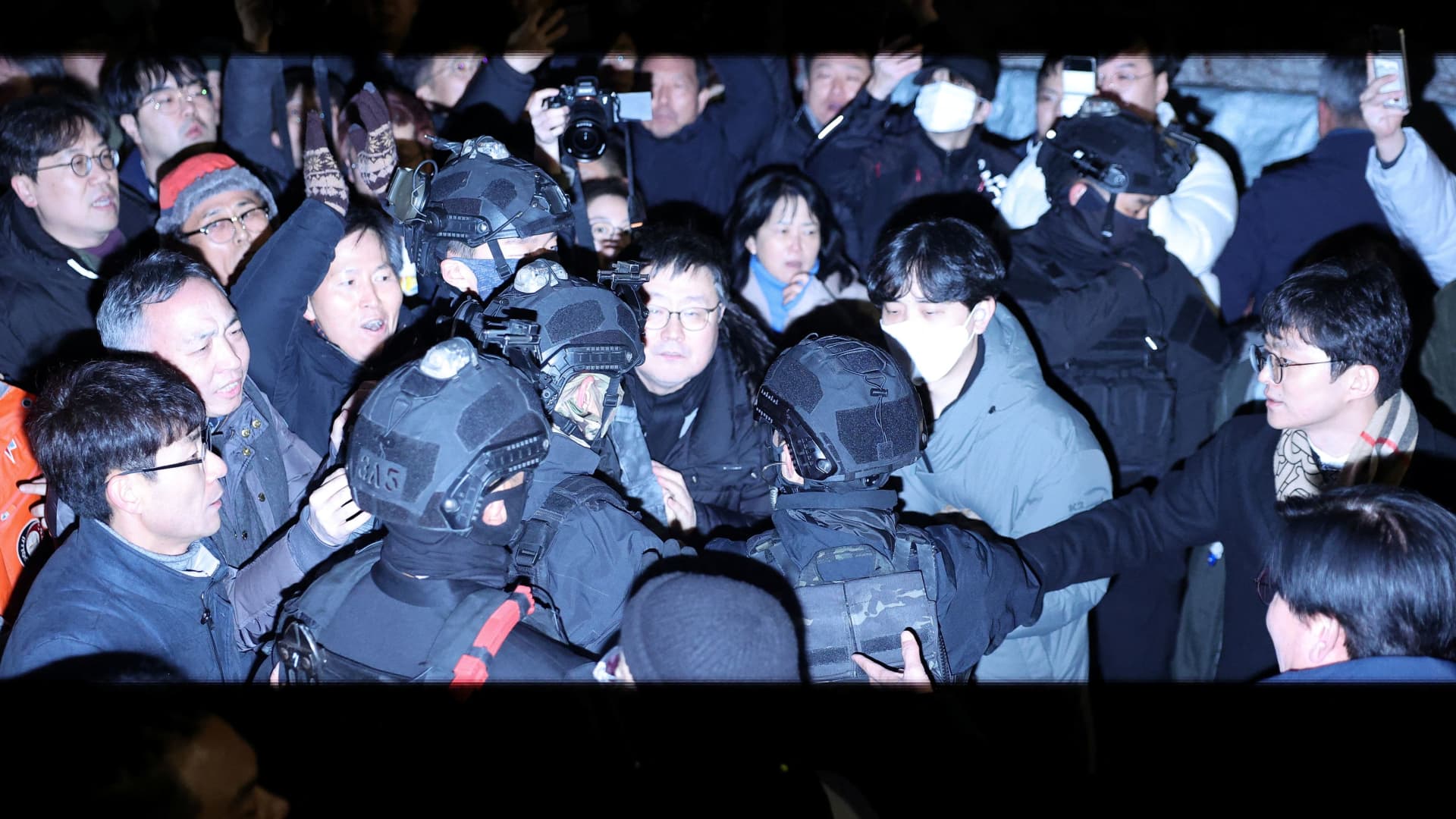Members of the military make their way through the crowd in front of the National Assembly, after South Korean President Yoon Suk Yeol declared martial law, in Seoul, South Korea, December 4, 2024.
Kim Hong-ji | Reuters
The South Korean National Assembly voted to overturn President Yoon Suk Yeol’s martial law decree Wednesday morning in Seoul.
Within three hours of Yoon declaring martial law late Tuesday night, 190 out of the 300 National Assembly lawmakers gathered to overturn the emergency order. Under the country’s constitution, the president is required to comply with the National Assembly’s vote.
This marked the first time in 44 years martial law was declared in South Korea. Yoon had accused opposition lawmakers of throwing the country into a political crisis.
“I declare martial law to protect the free Republic of Korea from the threat of North Korean communist forces, to eradicate the despicable pro-North Korean anti-state forces that are plundering the freedom and happiness of our people, and to protect the free constitutional order,” Yoon said, according to a Reuters translation.
However, Yoon’s martial law decree came as a shock even to members of his People Power Party. Party leader Han Dong-hoon and Seoul mayor Oh Se-hoon both voiced their opposition to Yoon’s martial law declaration on Tuesday night.
Yoon, who was elected in 2022, had been battling low approval ratings in recent weeks. Earlier this year, his party suffered a defeat in the legislative election. Yoon and the opposition Democratic Party, which holds the parliamentary majority, were caught in political deadlock over next year’s budget plan.
Democratic Party leader Lee Jae-myung, earlier in the night cited concerns on the martial law declaration’s effect on the economy.”The economy of Republic of Korea will collapse irretrievably, international trust will fall and foreign investors will withdraw,” Lee said in a livestream earlier in the night.
The declaration roiled Korean markets. The won fell sharply against the dollar, last trading down more than 1% at around 1,420 won. The iShares MSCI South Korea ETF (EWY), which tracks Korean stocks, dropped more than 2%.
The National Assembly had also been barricaded by soldiers and police officers.
“The Administration is in contact with the ROK government and is monitoring the situation closely,” said the White House National Security Council in a statement to NBC News.





